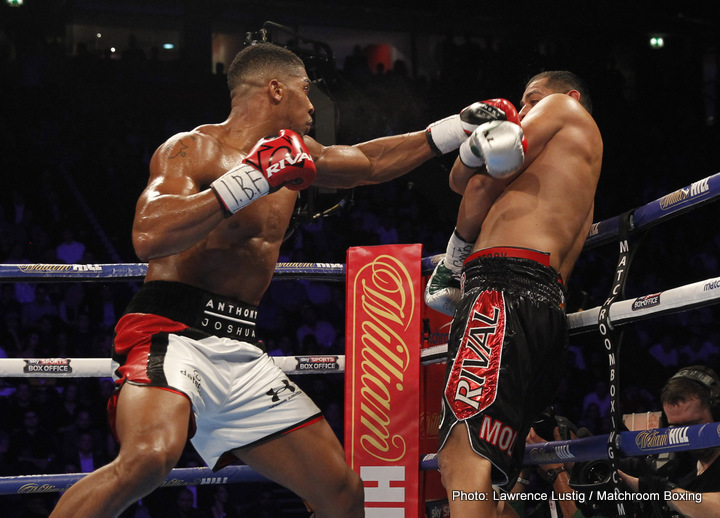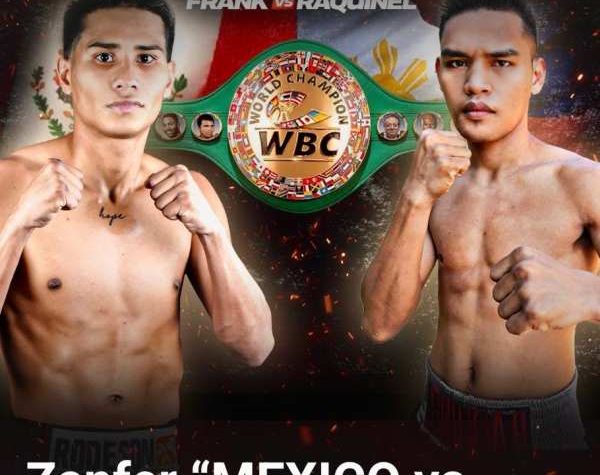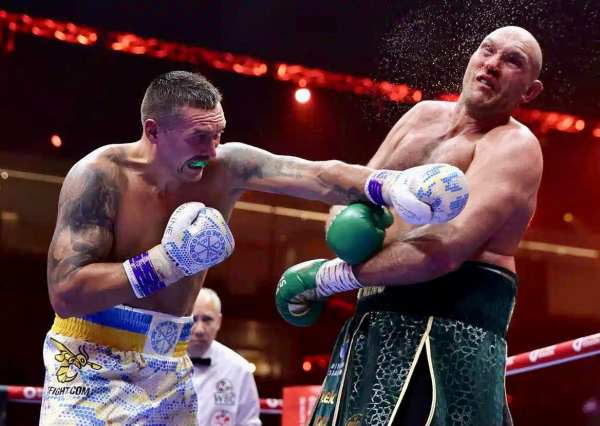

BoxingNews24.com
By Joseph Hirsch: The heavyweight division is not stacked right now, certainly not as thick with talent as some of the lighter weight classes. Alexander Povetkin’s potential matchup with Deontay “the Bronze Bomber” Wilder was scratched due to a failed drug test; Tyson Fury’s rematch with Wladimir Klitschko was also cancelled for a failed drug test (among other issues). The first match between Fury and Klitschko, while an upset in Fury’s favor, wasn’t much to write home about. Despite these drawbacks though, there is still enough going on in the division to excite the diehard fan.
Luis “King Kong” Ortiz is perhaps the best of the three men in the division not named Klitschko (the other two being Anthony Joshua and Deontay Wilder), but since Ortiz is a southpaw with a granite chin who is murder on the inside, you can expect the management teams of both Wilder and Joshua to swerve him for as long as possible. Ortiz had a less than spectacular showing recently against Malik Scott, but it’s hard to look good when your partner doesn’t come to dance, and Scott obviously came to spoil and merely survive.
Assuming Anthony Joshua and Deontay Wilder meet at some point (perhaps after Joshua’s fight with Klitschko, slated for spring 2017) who will emerge victorious and one step closer to unifying the division?
Both men are still undefeated, but each man is a work-in-progress. Anthony Joshua is undoubtedly the better boxer of the two, the one with slicker combinations and faster hands. Deontay Wilder is comparatively slow at times, throwing single shots so wide that he sometimes places himself off-balance when he misses.
But the better boxer isn’t always the better fighter, and he doesn’t always emerge with the “W.” Rocky Marciano lost twelve and a half-rounds against “Jersey” Joe Walcott, before landing what he called his “Susie Q” against Walcott and turning the tide to keep his unblemished record intact.
Championship rounds don’t go long enough these days to give Wilder the luxury of the extra nine minutes that many fighters needed in the golden age to land that heavy artillery, but it is possible that Joshua could be winning every round going into the twelfth when Wilder lands one overhand right bomb that takes the fight out of the judges’ hands.
Anthony Joshua has limited head movement, as commentator Paulie Malignaggi observed during Joshua’s bout against Eric Molina. That fight was short, but not so short that AJ’s weakness still didn’t show through. Joshua’s physique might be an asset for a competitive weight lifter. All that muscle is a bit of a liability in boxing, where speed is power and having oversized trap muscles reduces mobility. The exception is Bert Sugar’s “Little Engine that could,” cruiserweight-turned-heavyweight Evander Holyfield, who was built like a brickhouse and remained as supple in his movements as a coiled snake.
If Deontay Wilder’s right hand has healed, and if Joshua doesn’t give his opponent enough looks, AJ can be timed, caught flush, and sent to the canvas. That is a mighty big if, though, since Deontay Wilder suffered a broken hand and a torn bicep in his eighth round TKO over Chris “Nightmare” Arreola.
He claims the hand is healed and because he was forced to punch with only the left in training for a while, he may have even developed into more of a two-handed fighter. The injury and layoff could be a blessing in disguise, if the misfortune turned Wilder into a new and improved fighter.
To return to the Rocky Marciano comparison, the reader should remember that in the early part of the Brockton Blockbuster’s career, Rocky was considered something of a club fighter or a strongman not much more impressive than Primo Carnera. Contemporary journalists talked about crowds laughing at Marciano’s arcing shots that he threw so wide he elicited jeers from the grandstands. Marciano was a quick study though, and eventually people stopped laughing.
It remains to be seen whether or not Wilder can correct his own deficiencies that have nothing to do with his hurt hand or torn bicep. Wilder doesn’t have great head movement himself. In his fight against Arreola he seemed to have made some mistakes that his trainer former gold medalist Mark Breland should have corrected by now. Wilder kept his mitts low and fought off the ropes way more than he should have. He might have been able to afford the laziness and in-ring showboating against Arreola, a man well-past his prime who always had conditioning issues, but that’s beside the point. The best fighters never look past their present opponent, and bad habits get baked in and engrained in the ring as well as in the gym. Anthony Joshua might have laughed at paper champion Charles Martin after he put him on the canvas, but he wasn’t clowning while his opponent was throwing shots at him, a la Wilder against Arreola. The fans go crazy for such antics, but it’s still a bad look and a dangerous strategy unless you’re Roy Jones, and Deontay Wilder is not Roy Jones.
Getting down to the intangibles, the first one to consider is experience.
Joshua is the one with Olympic Gold, but AJ’s amateur career was not the longest (Lomachenko he ain’t). He’s had less than half as many pro fights as Deontay Wilder, who was no slouch as an amateur either, picking up the bronze in Beijing and becoming a Golden Gloves champ in 2007. Wilder has gone the distance as a pro. Joshua hasn’t. This would seem to suggest Wilder should try to make this a distance fight, since the longer the match goes past the middle rounds, the longer he makes the longest pro fight in Anthony Joshua’s career. That’s on paper, though. The truth is that Joshua’s conditioning is second-to-none, and Wilder is probably not going to take him into deep waters and drown him. If he tries, he may end up drowning himself.
Joshua is the faster fighter and has the higher ring IQ. He has more polish, and after he punches, his hands return quickly to their guard like guns to holsters. The most likely outcome for this fight is that Joshua blinds Wilder with his speed, loading up with flurrying combinations that fluster Wilder until the Bronze Bomber is reduced to wading in like a blind mummy and eating two or three shots to throw one that either misses the mark completely, doesn’t land flush, or is absorbed on AJ’s gloves.
The less likely but still possible outcome is that a fully-healed and retooled Deontay Wilder loses some rounds, remains patient, picks his shots, and is rewarded with an opening that he takes, throwing a bomb that stops Joshua in the middle to late stanzas of the action. We’ve seen Deontay Wilder staggered with flush shots (against Eric Molina no less). Anthony Joshua was rocked a few times in his fight against Dillian Whyte, and some (like Jarrell “Big Baby” Miller) still have questions about Joshua’s chin. Until proven otherwise, there is the nagging sense that a parallel between Anthony Joshua and former golden boy Amir “King” Khan might be apt.
Remember that Khan was tipped as the next big thing, and that his blazing hand-speed inspired awe, until he got into the ring with Breidis Prescott and that road to stardom crumbled into a boulevard of broken dreams, at least for the short term. It’s possible that Joshua has a solid beard, but questions linger, questions that could be answered by Deontay Wilder.
If Wilder stuns Joshua with a hard shot, there is no guarantee that he will close in definitive fashion. Wilder until now hasn’t shown himself to be the greatest finisher. Whether he is deliberately letting men off the hook to get more experience with rounds or whether he just doesn’t have that ingrained killer instinct is beside the point. Wilder’s chances of getting a KO against Joshua from one right hand are much better than his chances of getting a TKO from a cumulative series of unanswered blows. Joshua is too fast and too smart not to adjust when he’s in danger, and Wilder is too slow to overwhelm him with a fusillade of unanswered blows. The trick for Wilder, then, is to make sure Joshua doesn’t sense the danger until it’s too late.
That’s a tall order, though, and it needs reiterating that Joshua is the faster, smarter, and more talented fighter, and thus more likely to win. Wilder can win, but he needs a wing and a prayer, and his right hand in top form. He also needs to put all that gym training with the left to use in the ring. Joshua can be put on the defensive if jabbed consistently. If Wilder doesn’t set up his “Susie Q”, but holds it in reserve waiting for the perfect shot, he’s going to get countered all night and embarrassed in a near-shutout.
Joshua has his own tall order in the form of Wladimir Klitschko, who (while definitely past his prime) has the second-longest reign among heavyweights after the great Joe Louis and cannot be taken lightly. Wlad has his own issues, aside from Father Time, who spares no one except Bernard Hopkins. Klitschko has shown the potential to gas in the face of blitzkrieg pressure, as in his bout against Lamont Brewster. Klitschko also has a chin that, if tapped correctly, responds like fine teak china getting clobbered with a ballpeen hammer, as was proven by the massive upset TKO loss he suffered to South African Corrie Sanders. Klitschko is smart enough to defend his weak points, but Joshua is fast enough to seek out the great champion’s Achilles heel and bleed it dry.
Deontay Wilder obviously doesn’t want to waste much more time before getting the fight deal inked. He made it clear that he wants a tune-up in early 2017 to take his healed hand for a test run, but after that he’s gunning for Joshua. Watching Wilder comment on the Joshua-Molina fight on Showtime, the viewer could sense his hunger, his carefully hidden impatience, his need to get in there and prove that his hand isn’t a liability, and that even when the right is in perfect shape, he is a more complete fighter than his critics are willing to concede. Many intangibles can’t be discounted in this fight, from the psychic effect on Wilder of a fiercely partisan British crowd singing their star’s praises and drowning his opponent in a sea of boos, to the question of who wants it more. Watching Wilder sidelined and biding his time, one gets the feeling that he wants it more, and that will could possibly overpower skill. Anything is possible in boxing, and there have been bigger upsets.





More News
Liu Gang, Brico Santig Join Forces
Highland’s Double Impact: August 18 at Lumpinee
Balajadia, Atencio in Action in Thailand